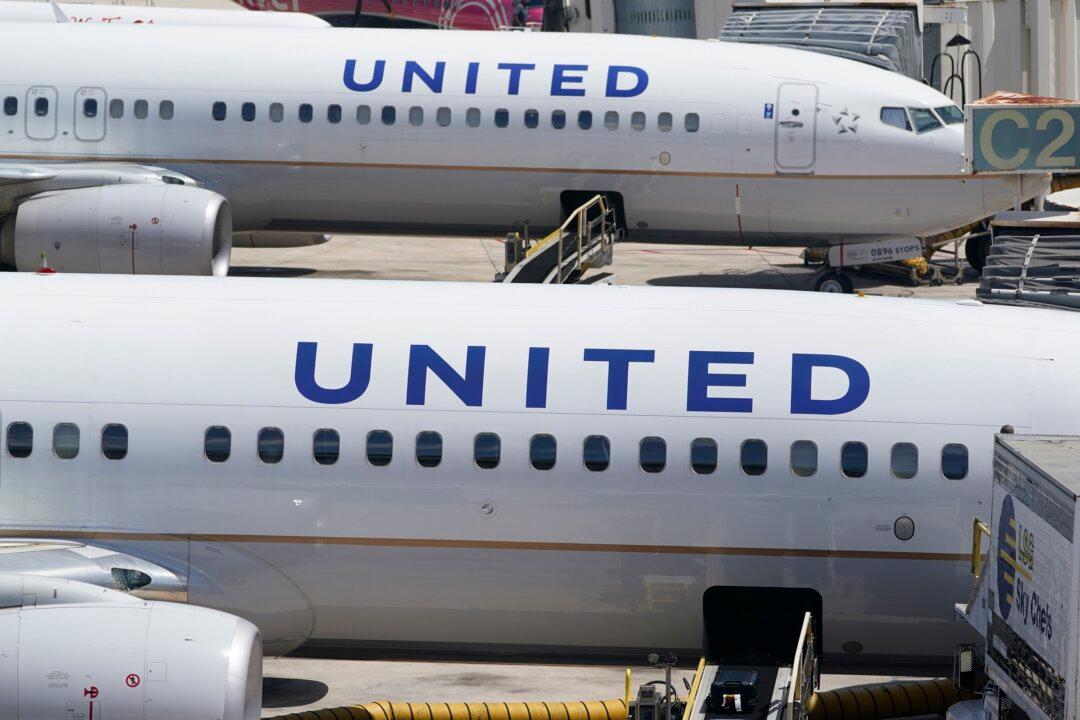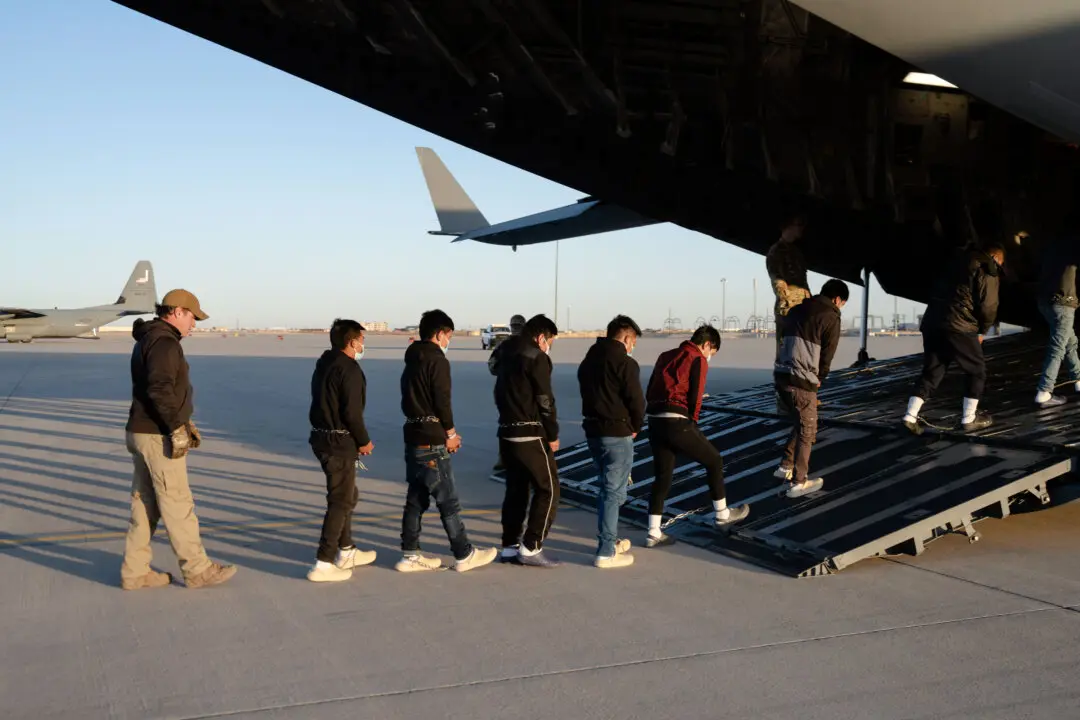The National Transportation Safety Board issued urgent safety recommendations to aircraft manufacturer Boeing and the Federal Aviation Administration regarding a “significantly compromised” critical flight control component on some 737 airplanes.
The NTSB is investigating an incident that occurred on Feb. 6, when the rudder pedals on a United Airlines Boeing 737-8 got “stuck” in their neutral position while landing at Newark Liberty International Airport in New Jersey. According to the Sept. 26 report from the investigative agency, the captain “used the nosewheel steering tiller to control the airplane’s direction after touching down” to avoid any mishaps to the aircraft or the 155 passengers and six crew members on board.





